By Maia James, with research and recommendations by Michael Hopkins, Phd

You probably remember Dr. Hopkins from his invaluable research on our Disposable Diaper Guide and Prenatal Vitamin Guide. As a scientist, Dr. Hopkins is able to read peer-reviewed studies and make sense of the potential risks of hundreds of ingredients (including how these ingredients interact with each other) that you’ll find even in natural face creams. With his help, I’ve written what I think is one of our most comprehensive products guides yet, so let’s get to it!
My Top Pick for Basic Natural Face Cream
Acure Organics Brightening Day Cream is my pick for an affordable natural face cream for everyday use with absolutely no concerning ingredients.
$16.99 — or subscribe and save up to 5%Buy Now
How We Came Up With Our List of Natural Face Creams
When we began researching this guide, we were immediately overwhelmed by the sheer volume of products, even within the “natural” face cream space. [expander_maker id=”3″ more=”Read more” less=”Read less”]
To cull the list down, we eliminated any product that does not specify that it is for the face and for daytime, as well as any product with an SPF designation. We also weeded out products that were more of an serum or balm and wouldn’t necessarily be appropriate for daily use on normal skin. (Night creams, anti-aging creams, and facial sunscreens will be covered in future guides.)
As always, we used EWG for lots of our ingredients research. There are some inconsistencies on the EWG website–one face cream has grapefruit extract listed as a 2 (out of a hazard scale of 10) and another product has the same extract listed as a 1. Other ingredients, like dimethicone and sodium hydroxide, have even greater ranges (from 1 to 4).
After deciding on the appropriate criteria for what would make brands Best, Good, Bad, or Okay Stuff (more on this in a minute), Dr. Hopkins made a spreadsheet some 25 columns long, and populated it with the list of all the natural face cream brands that you guys asked us to review and that we’d found on our own (this ended up being a staggering 175 brands of face cream!).
For each brand, Dr. Hopkins evaluated every ingredient for its safety and environmental impact and calculated affordability. I then plunked all the reviewed brands into a Best, Good, Okay, Bad or Sneaky Stuff category, which you can review at the bottom of this post.
A Note About “Natural” Face Cream
With face cream as well as other products, we prefer to find what we consider “clean,” rather than just “natural.” Sometimes ingredients from nature are very problematic–because of unsustainable sourcing or other environmental concerns (e.g. the environmental cost of palm oil, the mica mines in India) or even health concerns (Japanese honeysuckle, for instance, is a natural preservative whose structure looks like a paraben). On the other hand, sometimes (albeit rarely) synthetic ingredients can actually be safer/more sustainable alternatives.
What Makes a Face Cream the Best Stuff?

In order to be included in the “Best Stuff” category, we decided that a face cream needed to be free of the following 18 compounds:
- Benzyl alcohol. A preservative with carcinogenic and neurotoxic properties.
- BHT. Another preservative with a MSDS that mentions toxicity to the liver, blood, and central nervous system.
- Dimethicone. Safe from a toxicity standpoint, but these linear silicones do not biodegrade and are bad for the environment.
- Disodium EDTA. A chelating agent used in a variety of applications in both food and skincare products. It’s usually included as a preservative/stabilizing agent, but it also helps with rinse-off products for anyone with “hard water” because the EDTA binds with heavy metals, thereby preventing them from forming a residue on the skin. At the quantities used as a food additive and in personal care products, disodium EDTA is non-toxic. The choice to use products containing EDTA is more an environmental concern than it is a personal safety concern.
- Ethanol. Otherwise known as alcohol, ethanol is used as a solvent in various cosmetics. Among irritation concerns, ethanol is shown to enhance the penetration of other chemicals.
- Fragrance. Generally, phthalates are added to fragrance to help the scent last longer, and companies are NOT required to disclose the presence of phthalates. Some products do list “fragrance*” with an asterisk on their label, and then explain that the fragrance contains no synthetic ingredients. For transparency purposes, any brand that maintains a proprietary blend or secret recipe will not qualify as Best Stuff. Some brands also specify that they use isolated compounds derived from natural essential oils, but that are not the complete, naturally occurring substance. These products can be Good Stuff or Okay Stuff.
- Myristyl myristate. This naturally occurring ester is found in many types of oils and fats and serves as natural emollient, texture enhancer, or emulsifier in a range of skincare products. Although there are no toxicity risks with myristyl myristate, this ingredient can be an irritant when used topically. For that reason only, products that contain it will not be included under Best Stuff.
- Parabens. These preservatives are notorious endocrine disruptors that mimic estrogen in the body.
- PEG chemicals. These petroleum-based chemicals are are used in cosmetics as stabilizers and to aid the penetration of other active ingredients. The PEG number indicates the number of units of ethylene glycol, and the lower the number the more absorbent it is. One example you’ll see on many face cream labels polyethylene glycol.
- Petrolatum is a petrochemical derived from crude oil (also known as “petroleum jelly” which is used as a lubricant). It can be contaminated with polycyclic aromatic hydrocarbons (PAHs) which are carcinogenic. Even without carcinogenic contamination, it can be a skin irritant and is not environmentally friendly–so you’ll never find it in Best Stuff or Good Stuff or even Okay Stuff.
- Phenoxyethanol is an ingredient that we’ve debated fiercely here at the Gimme headquarters! When it comes to face cream, we’ve decided that no Best Stuff cream can contain phenoxyethanol. Still, we feel that phenoxyethanol is basically Okay Stuff when used in the concentrations found in cosmetics. It’s unlikely to be wdangerous, but hopefully cleaner preservatives are formulated in the near future.
- Phthalates. We have a zero-tolerance policy with these super toxic endocrine disruptors (which you often won’t see listed on a label because they can hide out in “proprietary” fragrance blends). Nothing that we call Best, Good, or Okay Stuff will ever contain phthalates.
- Polysorbate 20 is derived from sorbitol, which is a harmless natural sugar alcohol that’s been ethoxylated (combined with 20 parts of ethylene oxide). Unfortunately, during this process it can become contaminated with 1,4-dioxane, which is a toxic carcinogen. Although polysorbate 20 is not toxic, the risk of contamination precludes this ingredient from being present in Best Stuff or Good Stuff. However, this alone would not prevent an otherwise clean, natural face cream from being Okay Stuff. (See polysorbate 60 as well.)
- Potassium sorbate is an odorless and tasteless salt that’s synthetically produced by combining sorbic acid with potassium hydroxide. It is very commonly used as a preservative and has been ruled as generally safe to eat by the FDA and European Food Safety Authority when present in small quantities. When applied topically (in skin cream for example), potassium sorbate can cause irritation or an allergic reaction. This ingredient would not be found in a Best Stuff pick but if this is the biggest offender on a label, the product can still be Good Stuff.
- Retinyl palmitate. This is problematic when used topically on the skin due to potentially carcinogenic properties when exposed to sunlight. If you want to play it safe, it’s better to avoid this for face cream that you’ll be applying daily in the morning. Thus, we didn’t include any products with retinyl palmitate in the category of Best or Good Stuff for this daily face cream guide.
- Sodium benzoate. This food-grade preservative, when combined with ascorbic acid (vitamin C) and potassium benzoate (another preservative), can create benzene, a well-known carcinogen. Research remains inconclusive and long-term studies are needed. You won’t find sodium benzoate in any of the Best Stuff natural face creams, but if there are not other offending ingredients, products with sodium benzoate may be included in the Good Stuff.
- Sodium hydroxide. The EWG cites studies that show moderate evidence of metabolic effects even at very low doses and score this a 3 out of 10 in the hazard scale. Best Stuff won’t contain sodium hydroxide, but Good or Okay Stuff might.
- Terpene alcohols. This list includes geraniol, linalool, nerol, camphor, citronellol, citral, limonene, eucalyptol, menthol and several others. These compounds occur naturally in the essential oils of many aromatic plants, and are often used for their fragrance. They have been shown to be anti-microbial, anti-bacterial, anti-fungal, anti-inflammatory, and also have demonstrated anti-cancer activity against various cancer cell lines in vitro. On the other hand, terpene alcohols can produce skin irritation/allergic reaction/sensitization after prolonged industrial exposure. These compounds are deemed safe for human use, but if you have a particular reason to be concerned (such as a known allergy or very sensitive skin) there is enough Good Stuff on the market that you should have no trouble locating a product without these terpenes. For this reason, nothing in the Best Stuff category contains them, although I am not personally worried about them.
- Tocopherol (vitamin E) is safe, but we are dinging products that contain tocopheryl acetate, which is the synthetic version, because of increased reported toxicity, risk of irritation, and contamination concerns (with toxic hydroquinone). Nothing in the Best Stuff or Good Stuff categories will contain tocopheryl acetate.
Surprisingly Not Sneaky Stuff
Many ingredients in skincare products might sound like synthetic compounds designed in a lab but they are actually just the latin or scientific names for naturally occurring/organic products, often extracted from plants. The following is a list of ingredients that are perfectly safe:
- Tocopherol just means vitamin E.
- Butyrospermum parkii is shea butter.
- Nyacinamide is vitamin B3.
- Guar hydroxypropyltrimonium chloride is just a derivative of guar gum from cluster beans and is a commonly used conditioning agent that is natural and safe.
In addition, to be considered the Best Stuff, a face cream must be:
- Organic (either entirely or mostly).
- Vegan. I don’t eat a vegan diet, but it’s impossible to not recognize that veganism is better for the planet. When it comes to face cream, there are so many options available, that there is room to make a distinction on these ecological grounds.
(By the way, I don’t think there is any reason to worry about face cream being gluten-free, although several of these brands also check that box.)
Problematic Ingredient Combinations
There are a handful of ingredients that are basically safe on their own, but a problematic when mixed with other ingredients. For instance:
- Potassium sorbate + ascorbic acid + ferric salts can potenially mutate cell DNA.
- Sodium benzoate + ascorbic acid can form carcinogenic benzene. We consider this low risk because the pH in cosmetic products are usually in the range where benzene will not form. Still, if you’re worried, make sure to choose something we call Best Stuff, since thouse brands won’t contain sodium benzoate.
What’s the Difference Between Best Stuff & Good Stuff?

When it comes to the Good Stuff category, there are several natural, clean face creams whose only crime is not being organic, or containing beeswax or terpenes from essential oils (which may be irritating for those with very sensitive skin), or perhaps they contain a bit of ethanol or potassium sorbate (also possible irritants).
Most of the 19 ingredients listed above will not be found in the Good Stuff, but there are a few exceptions worth mentioning:
- Propriety fragrance. Any brand that maintains a proprietary blend or secret recipe will not qualify as Best Stuff, but–as long as the blend is natural and phthalate-free–it might still be Good Stuff.
- Low-risk preservatives (phenoxyethanol, potassium sorbate, sodium benzoate). These synthetic preservative may be found in Good Stuff–if there are no other offending ingredients in the product in question.
Dr. Hopkins and I agree that we are comfortable using anything that you’ll find listed below under Good Stuff in our own homes. What’s Allowed in the Okay Stuff?
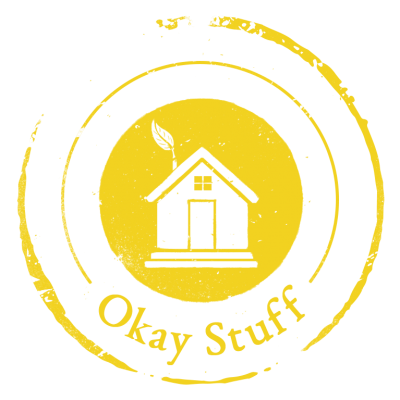
The long list of products that we deemed Okay Stuff are mostly there because they contain phenoxyethanol or sodium benzoate. A few of them have neither but some other combination of not-so-good-stuff to keep them from receiving the Good Stuff stamp, such as:
- Dimethicone, which is more of an environmental concern than a toxicity concern.
- EDTA precludes inclusion in our Best Stuff or Good Stuff categories, but may be found in the Okay Stuff.
- Polysorbate 20 is not toxic, but the risk of contamination precludes this ingredient from being present in Best Stuff or Good Stuff.
I am comfortable using the Okay Stuff if I don’t have access to Good or Best Stuff face creams.
Best Face Oils
We will do a serum/oil guide separately, but Dr. Hopkins did identify some face oils in his research that will definitely make our Best Stuff category, including:
Badger Face Oils (they make several—all are safe)
Drunk Elephant Virgin Marula Luxury Facial Oil
Ora’s Amazing Lightweight Daily Nourish Face Oil
Soapwalla Restorative Facial Serum (personal favorite)
The Best Stuff

100% Pure Hydra Drench Cream
I haven’t tried this one myself, so I cannot speak to whether it’s worth the high price point, but it contains no worrisome ingredients.
Acu re Organics Brightening Day Cream
re Organics Brightening Day Cream
$17 ($10 an ounce)
I’ve used this for years as a basic natural face cream with absolutely no concerning ingredients.
$16.99 — or subscribe and save up to 5%Buy Now
 Anadalou Naturals 1000 Roses Day Cream
Anadalou Naturals 1000 Roses Day Cream
$25 ($14.70/ounce)
Please weigh in if you’ve tried this super clean, super natural formula!
Carina Organics Daily Face Moisturizer
$15 ($3.57/ounce)
I love this organic, natural face cream that has none of the problematic ingredients mentioned above. It’s an affordable option, too, and is light, non-greasy, and absorbent.
$15.99 — or subscribe and save up to 5%Buy Now
LaCreme Luxurious Rose Facial Cream
$103.60 ($61.28/ounce)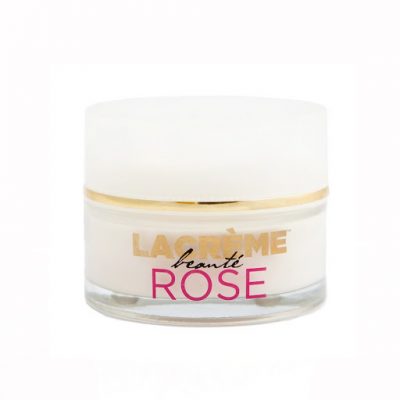
I would love to try this clean, natural face cream to see if it’s worth the high price! Anyone want to buy me a tub of it? 😉
Naturopathica Calendula Essential Hydrating Cream
A light but substantial natural face cream with no concerning ingredients.
 One Love Organics Skin Dew Coconut Water Cream
One Love Organics Skin Dew Coconut Water Cream
$58 ($27.62/ounce)
Unlike many face creams with a cult-following, this one is 100% natural and really works to renew dull, dehydrated skin.
Rejuva Minerals Ultra Hydration Moisturizer
$18 ($9/ounce)
There aren’t any ingredients of concern here, but not every single ingredient is organic. I haven’t tried this one myself, but it gets good reviews.
The Good Stuff
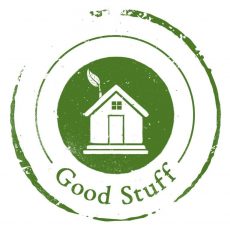
Alba Botanica Hydration Sensation Gel  Cream
Cream
$16 ($9.41/ounce)
This one is widely available at Whole Foods and health food stores, but I haven’t tried it yet.
Andalou Naturals Probiotic & C Renewal Cream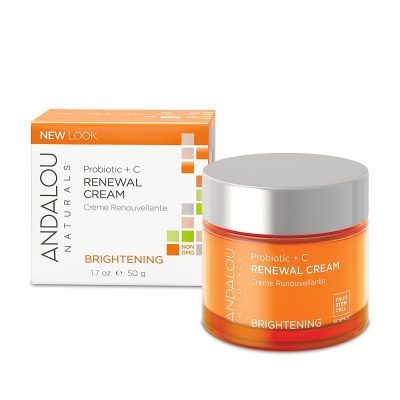
$25 ($14.70/ounce)
This one borders on an anti-aging product, but I want to try it (my skin needs renewing!), so I am leaving it here.
Babo Botanicals Miracle Moisturizing Face Cream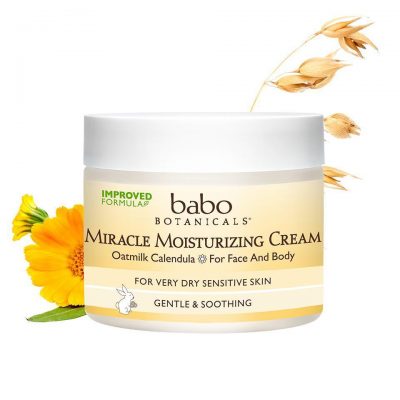
$12.99 ($6.49/ounce)
If you have very dry skin, this is an awesome rich, natural face cream that can also be used on the body.
$12.99 — or subscribe and save up to 5%Buy Now
Beautycounter Nourishing Day Cream 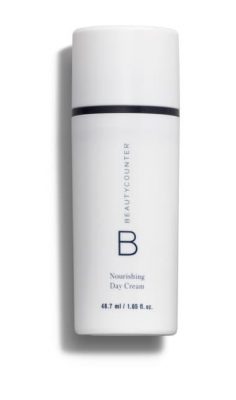
$45 per bottle ($26.95/ounce)
I love many Beautycounter products, but this one isn’t my favorite. There’s nothing wrong with it in terms of its performance, but I there are simply other face creams that I like more.
$45 (1-ounce)
This was one of the first natural face creams I ever tried, and remains one of my favorites–even if it isn’t the very safest.
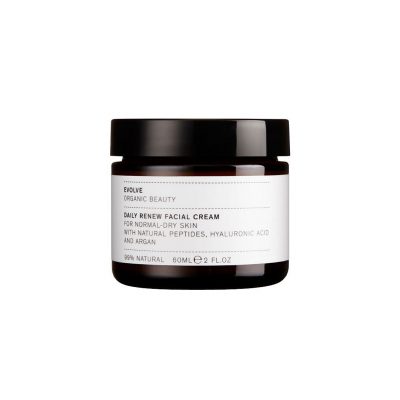
Evolve Organic Beauty Daily Renew Face Cream
This one was reader-recommended, so those of you who love this brand–tell us why below in the comments.
$36 ($18/ounce)
Farmaesthetics Nourishing Herbal Cream
$43 ($10.75/ounce)
We LOVE Farmaesthetics around here, and this cream has developed a devoted following among our customers as well as our staff. It’s rich enough to use as a night cream.
$44.00 — or subscribe and save up to 5%Buy Now
Farmaesthetics Nourishing Lavender Milk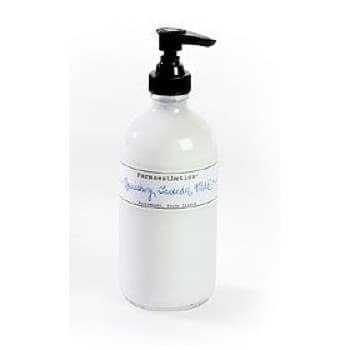
$42 ($5.25/ounce)
Luxurious as it may be, this milk is still light enough for face or body–and a great choice for babies, too.
$42.00 — or subscribe and save up to 5%Buy Now
Herbivore Botanicals Pink Cloud Rosewater Moisture Cream
We give this one extra points for being a in a (beautiful) glass jar.
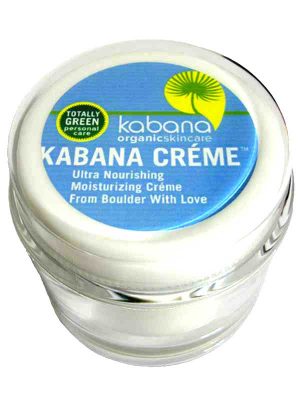
Kabana Crème Ultra Nourishing Moisturizer
$15 ($2.50/ounce)This one isn’t vegan as it contains lanolin, and is a little too thick and sticky for my taste. Still, it’s a safe option.
Living Nature Nourishing Day Cream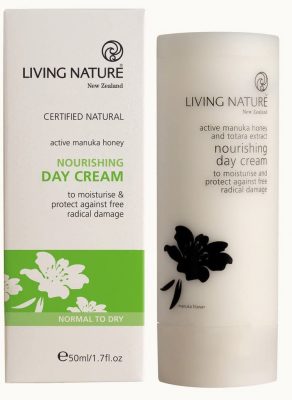
$36.82 ($21.66/ounce)
I’ve been using this day cream lately, and it’s nice and light and absorbs well.
$26 (1-ounce)
Based on many of your rave reviews, this is the one I’m going to try next!
Nourish Organic Hydrating Face Cream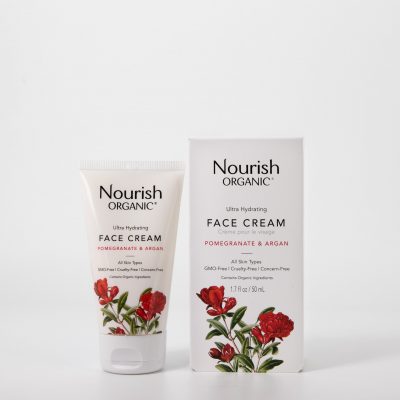
$25 ($14.70/ounce)
This hydrating formula is a really nice, pleasantly-scented basic natural face cream.
$48 to $108 ($24-$54/ounce)
Osea makes a variety of natural face cream formulations, and they all qualify as Good Stuff!
Poofy’s Flawless Face Daily Moisturizer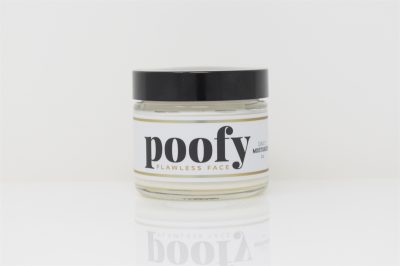
$33 ($16.50/ounce)
I’m a big fan of Poofy in general, but I have not tried this particular product.
Tata Harper Reparative Moisturizer & Creme Riche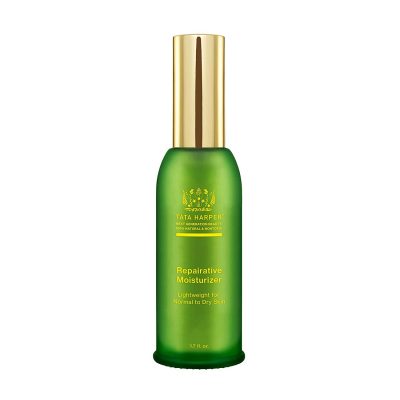
$119 ($70/ounce)
I know many of you love Tata Harper, but I’ve been to frugal to spring for this one! Would love your thoughts on this–should I splurge? Let me know!
$20-$30 ($15-$20/ounce)
Weleda makes a variety of natural face creams, all of which I love for their thicker, creamier texture.
$19.99 — or subscribe and save up to 5%Buy Now
The Okay Stuff

Aesop
Aesop makes several popular skin creams, all of which are just Okay Stuff because of PEG chemicals, disodium EDTA, and phenoxyethanol.
Cetaphil Daily  Hydrating Lotion
Hydrating Lotion
$13.00 ($4.33/ounce)
Surprise! Cetaphil’s basic daily face lotion is actually Okay Stuff–and definitely the best thing you’ll find in a drug store.
 Elta MD AM Therapy Facial Moisturizer
Elta MD AM Therapy Facial Moisturizer
$30 ($17.65/ounce)
Can someone explain to me while every dermatologist is obsessed with Elta MD? I like this moisturizer, but it still isn’t my first choice.
Everyone (EO) Nourishing Face Moisturizer
$8.99 ($2.25/ounce)
You can find this brand at Whole Foods, and it’s fine in a pinch–but nothing special in terms of performance or ingredients.
FirstAid Beauty Skin Rescue Daily Face Cream
$22.00 ($11.00/ounce)
Several readers recommended FirstAid Beauty, so I plan to try this brand and will report back on performance.
Garden of Eve Clearly Lovely Face Cream
$66 ($50.77/ounce)
This is a nice basic face cream, but there are safer options at a lower price point.
Goodee Eco Marine Facial Cream
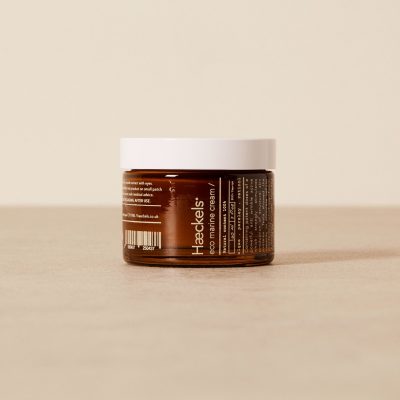
$62.00 ($30.56/ounce)
This brand is hard to find, but if you’re one of the readers who already is hooked, there is nothing too terrible lurking inside the bottle!
Inna Organic Frankincense Revitalizing Face Lotion
$40.13 ($23.75/ounce)
I haven’t tried this one yet, but it gets good reviews.
Kiehls Ultra Face Cream
Ultra Face Cream
$53 ($12.62/ounce)
Most Kiehl’s products are distinctly Bad Stuff, but this face cream is a notable exception.
.Kora Organics
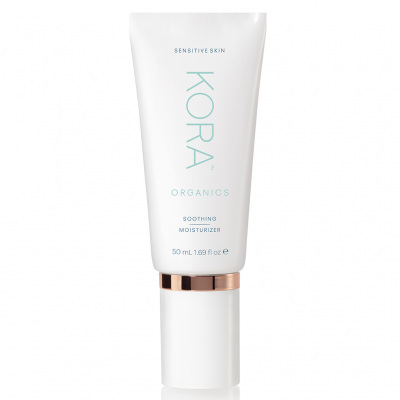
$48 ($28.40/ounce)
All of the face creams in this line–Hydrating, Purifying, and Soothing–are just Okay Stuff because of sodium hydroxide, benzyl alcohol, and sodium benzoate.
 Mineral Fusion Intense Hydration Face Cream
Mineral Fusion Intense Hydration Face Cream
$22.99 ($6.76/ounce)
This one is widely available and gets decent reviews.
Sahajan Nourish Face  Cream
Cream
$60 ($35.30/ounce)
Despite the high price point, I am tempted to give this one a try just because of how lush it looks in this photo.
Skinceuticals Daily Moisture
$63 ($31.50/ounce)
A facialist once gave me a sample of this, and I have to say that I loved it.
Trilogy Ultra Hydrating Face Cream
$40 ($16/ounce)
If you’ve used this one, please comment below on how it performs!
The Bad Stuff
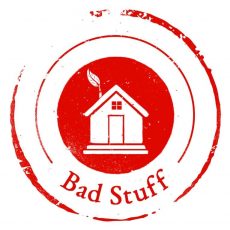
As is often the case, the Bad Stuff when it comes to face creams isn’t much of a surprise. Estee Lauder, La Mer, Cerave, and Aveeno should be avoided. They contain synthetic fragrance and PEG chemicals, and Cerave even contains parabens!
The Sneaky Stuff
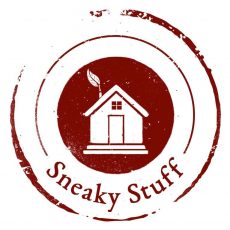
That distinctive scent in Aveda’s various skin creams is synthetically-derived, and you’ll also find phenoxyethanol and dimenthicone in this brand.
I was honestly surprised when Dr. Hopkins told me that Derma E Hydrating Day Cream contains retinyl palmitate (which receives a 9 from EWG!).
Eminence is a high-end brand that a lot of you love, and which makes several organic face creams. It’s not the worst stuff in the world, but contains a few problematic ingredients, including benzyl alcohol and sodium benzoate.
Fresh, including their popular Peony Brightening Moisture Day Cream (which is more than $70 a bottle) contains synthetic fragrance, polycrylamind, PEG chemicals, and other Bad Stuff.
Honest Company Deep Hydration Face Cream is almost Okay Stuff. In the end, there are just too many not great ingredients (benzyl alcohol, which EWG gives a 5, dimethicone, etc.) to not call this Sneaky Stuff.
We are often asked about Norwex, as it purports to be natural and organic. Their Naturally Timeless Day Cream is, unfortunately, Sneaky Stuff. Norwex makes claims of “NO EDTA!” and then lists EDTA in the ingredients, so that doesn’t inspire much confidence.
Yes To! makes a variety of “natural” face creams, but they contain synthetic fragrance, phenoxyethanol, and other bad stuff.
If you liked this post, sign up for our newsletter to be alerted when we publish new content like this!

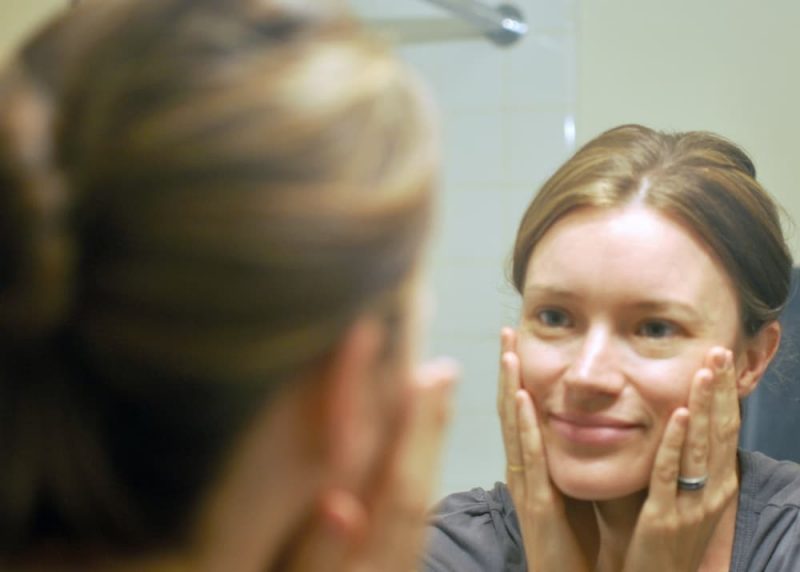
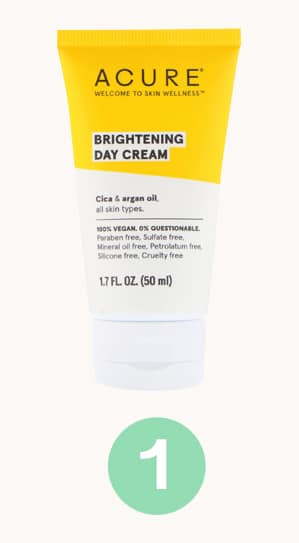
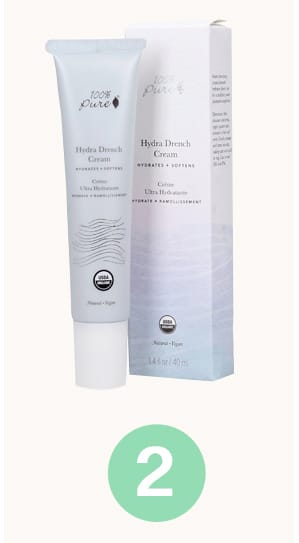
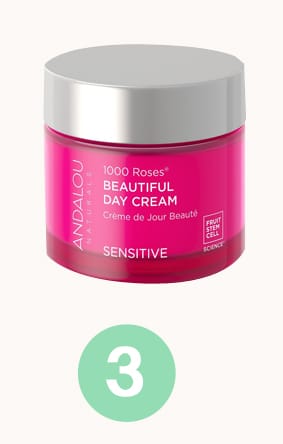

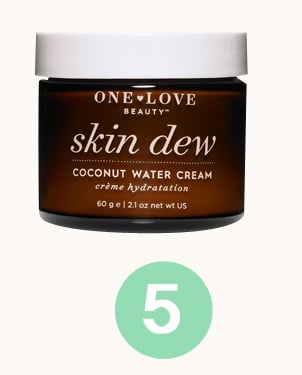
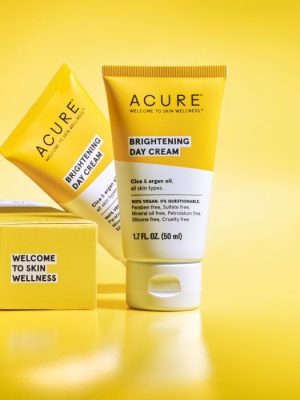
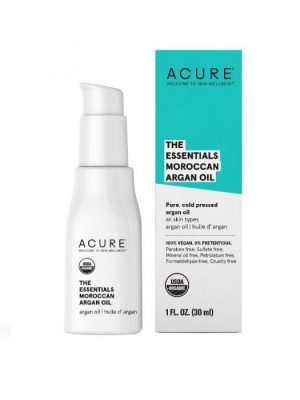
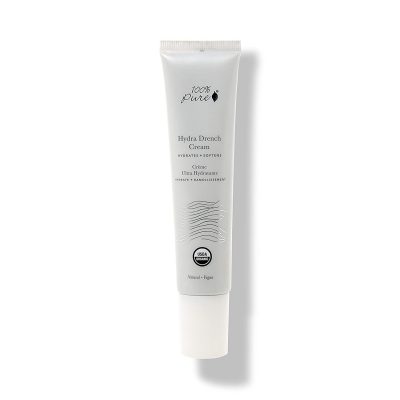
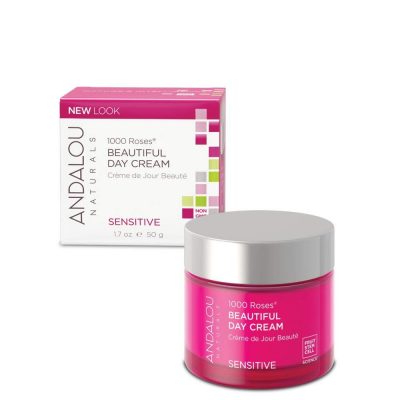

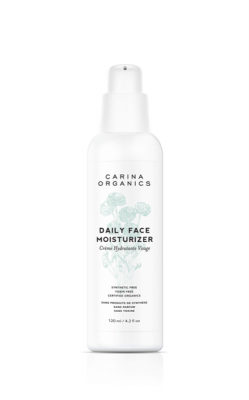
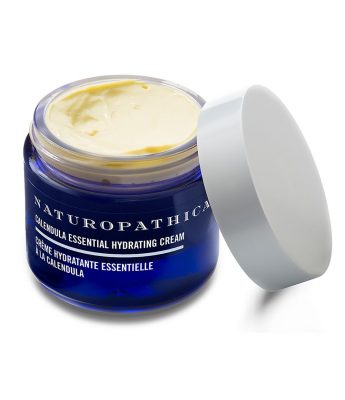
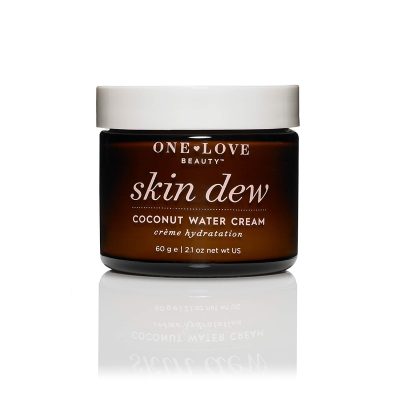
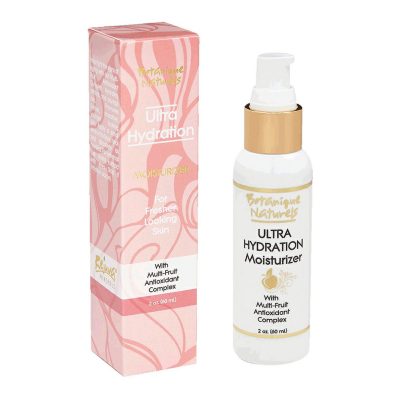
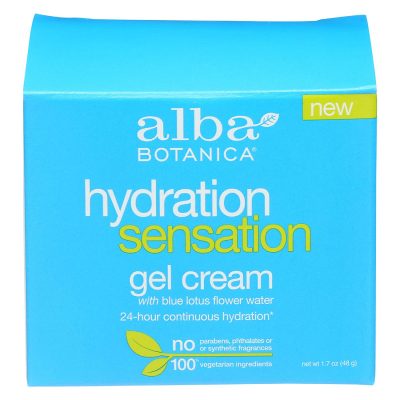 Cream
Cream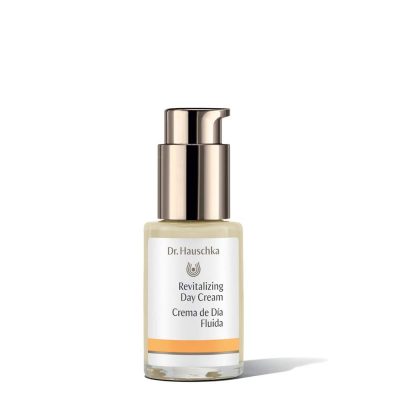
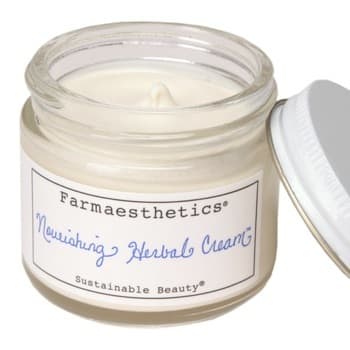
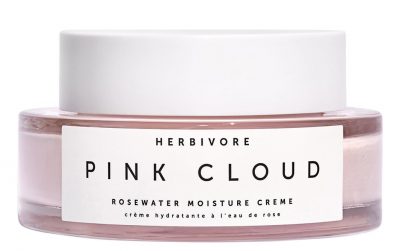
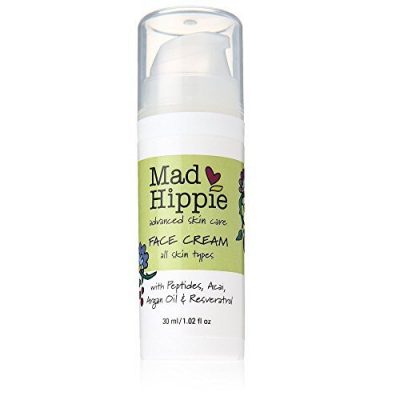
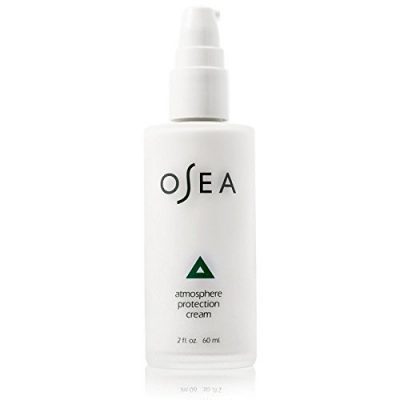
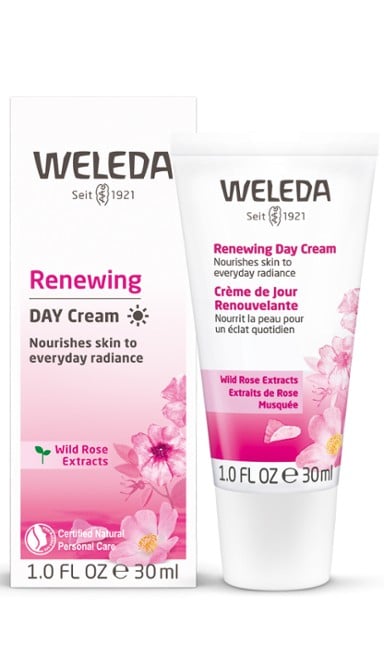
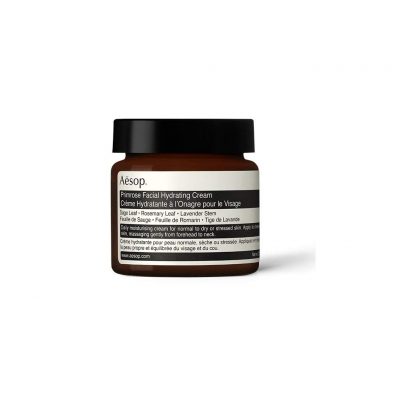
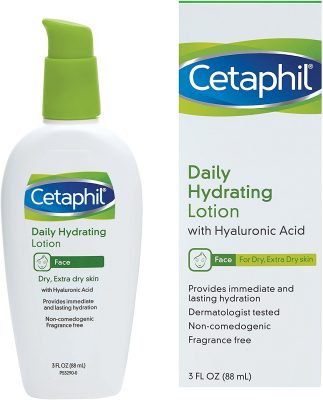
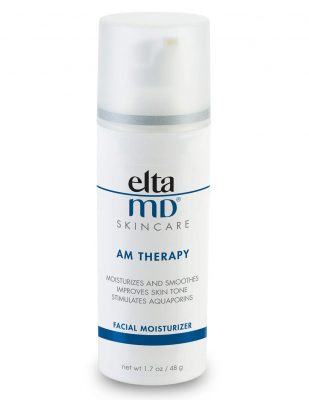
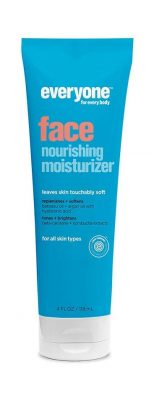
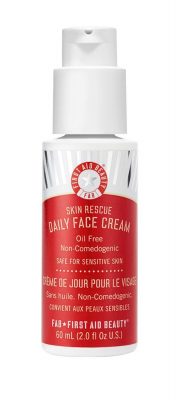
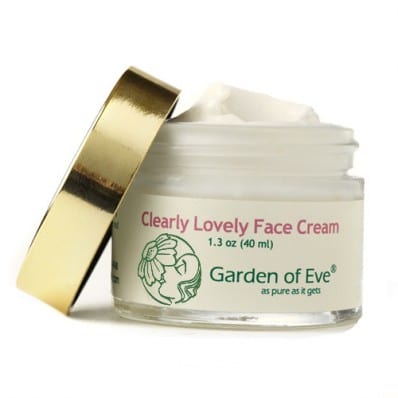
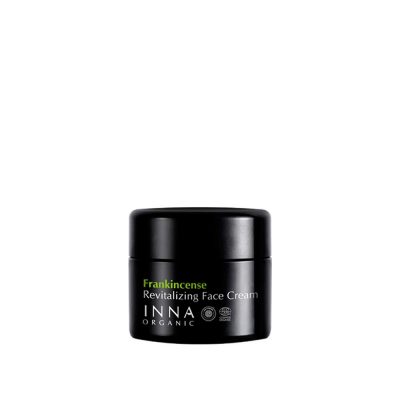
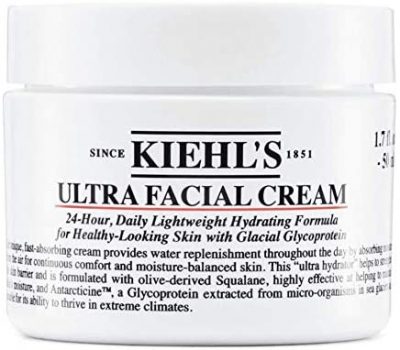
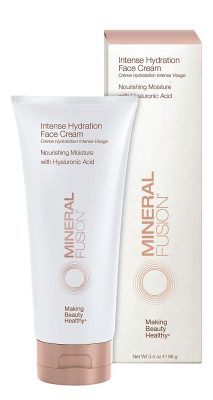
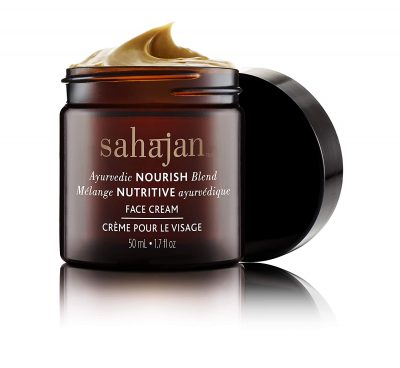
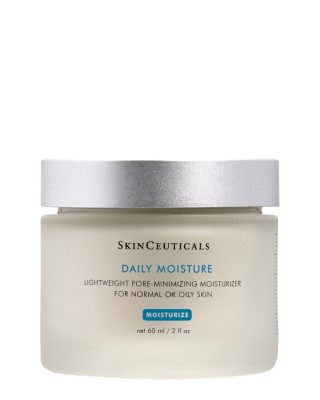
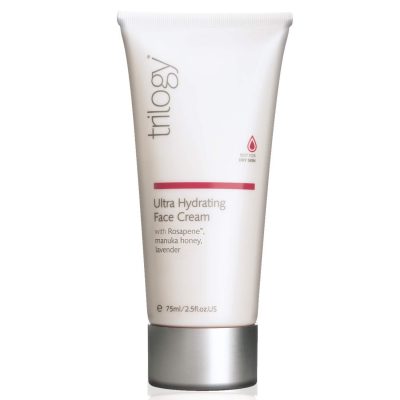
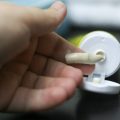

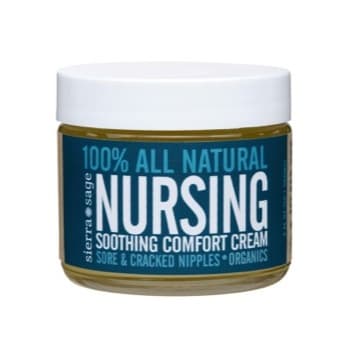
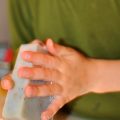
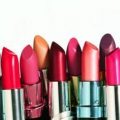

Jamie says
I’ve had the same exact thought about Elta MD! Don’t get why every derm loves it, but I will say I have tried and liked the clear zinc sunscreen from that brand. I’ve tried the trilogy cream you have on this list and it was just too thick for me, almost reminded me more of an ointment and didn’t do a very good job of nourishing my skin. I think I would like it more for use as a hand cream.
Stacy says
Do you have thoughts on Limelight by Alcone?
Maria says
Hi, do you know the Biossance line?
Amy says
Hi! Not sure if you’ve checked them out yet but Follain is a company that has non-toxic skincare (such as Osea and Tata Harper). There is a store in NYC – would love to hear what you think of some of their products!
Elizabeth Osborne says
Hi – the Elta MD sunblocks are fantastic. Very easy to rub in. Perhaps that’s why the face cream gets a good reputation.
It’s also pricey, but I love skinceuticals triple lipid restore face cream and skinceuticals physical fusion UV defense sunscreen.
I’d also be curious to hear your thoughts on Revisions DEJ eye cream and nectifirm.
I love Fresh Soy Face cleanser because I can use it on my eyes too. Any thoughts on it? Or any other face wash that can be used on eyes too?
Thank you! Love the post!
Caroline Taylor says
Have you tried Josh Rosebrook or Earth Harbor? Those are the most natural ingredient brands I have found, but would love to know more about environmental impact of ingredients and allergens.
Zoë G says
I love LuxeLotion & recommend it highly – I think it probably qualifies as Good Stuff at the least. Would love to hear your thoughts on Mychelle Dermaceuticals’ face products!
Vaidehi Deo says
Andalou Naturals 1000 Roses Day Cream is actually my husband’s favorite , as its light and it doesn’t irritate his skin. We both love it. Happy to see it in the best list.
Vaidehi Deo says
Can you add reviews for moisturizers from these brands as well – Ursa major, Josh Rosebrook, May Lindstorm, Pai, Oddacite, MV Skincare, Mahalo, Fitglow
Adi says
I really wish you can add a category for made in America
stella says
What about neutrogena fragrance free products?
Maia James says
Unfortunately Stella that is Sneaky Stuff!
Ashley says
What about Youth to The People. I’ve been using their products lately and I was wondering where they fall on your categories?
Cathy says
Andalou products:
I have and continue to use both products you mention in your list and absolutely love them!
Today I decided to try Acure. I hope it works fine on my skin.
Catherine says
Any news on Tula products?
Beatriz says
Can you do Face washes?
Angie says
Love your site! What do you think about Yves Rocher brand? Thank you!
Angie says
Love your post! Have you looked at Japanese brands, like Tatcha or Shiseido? Your reply would be so appreciated!
Angie says
Quote “Phenethyl Alcohol – A preservative and fragrance ingredient. It has never been assessed for safety but bodycare specific animal studies show sense organ effects and skin irritation at very low doses, and brain, nervous system and reproductive effects at moderate doses. Further testing also revealed this ingredient to be responsible for mutation on mammalian cells.”
Is this true? I found this chemical not excluded from your list? And at least Andalou products contains this.